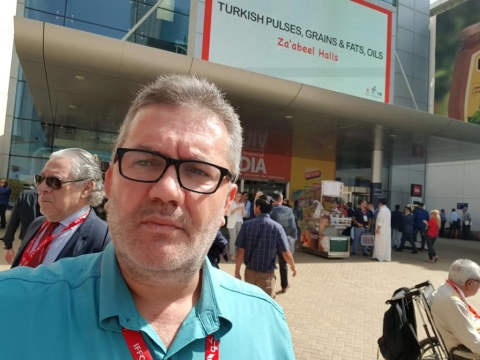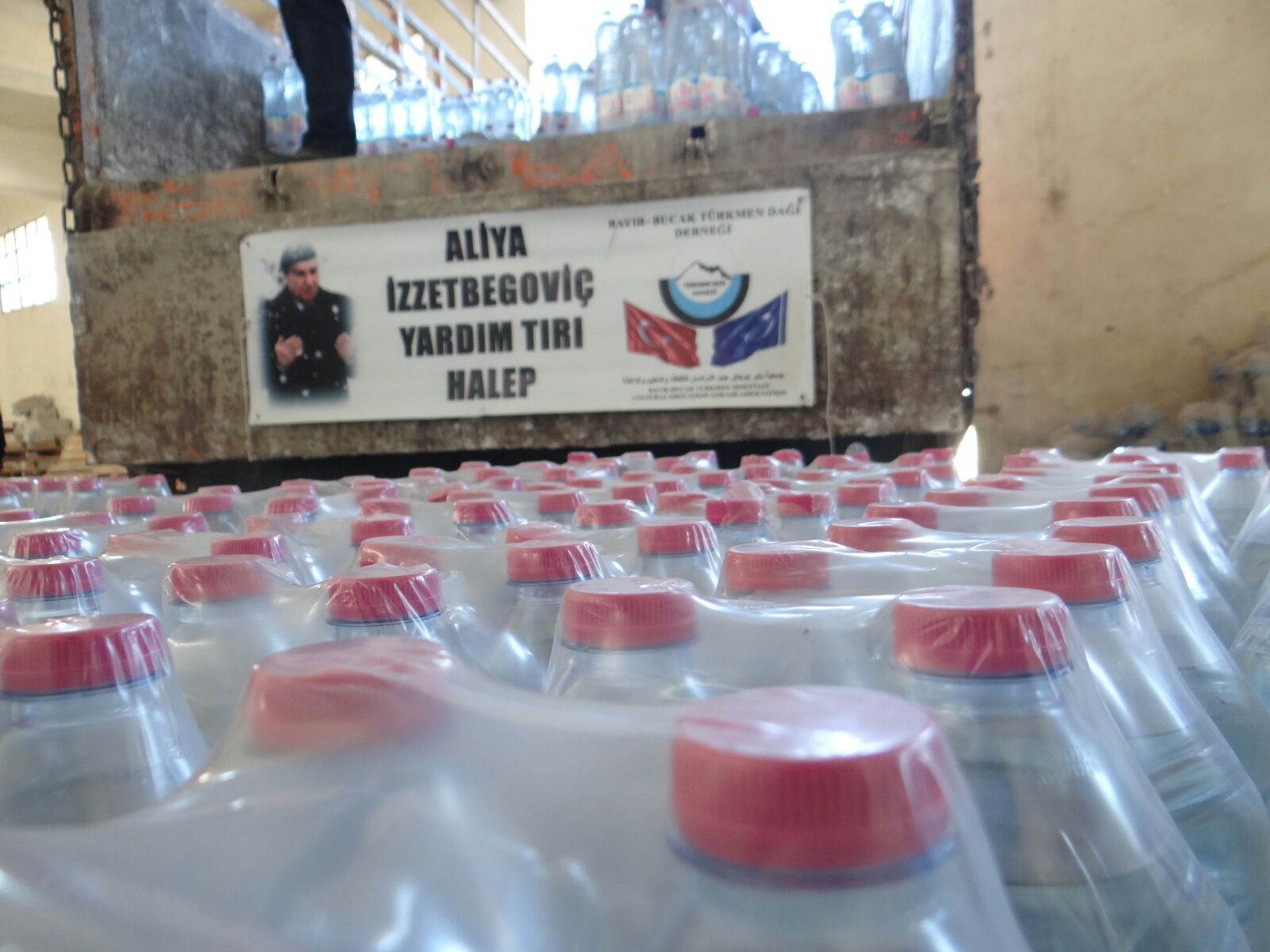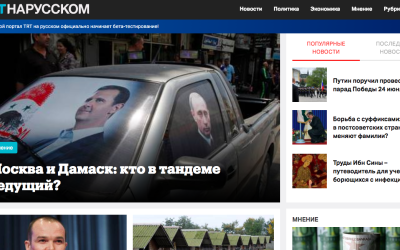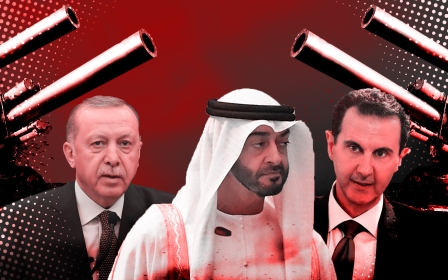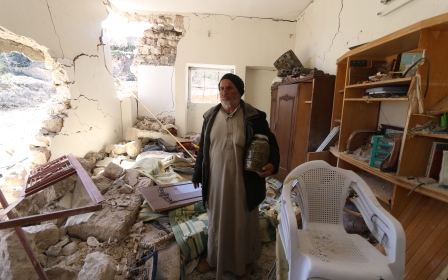The Turkish aid worker tortured in the UAE, pushed to slander Erdogan
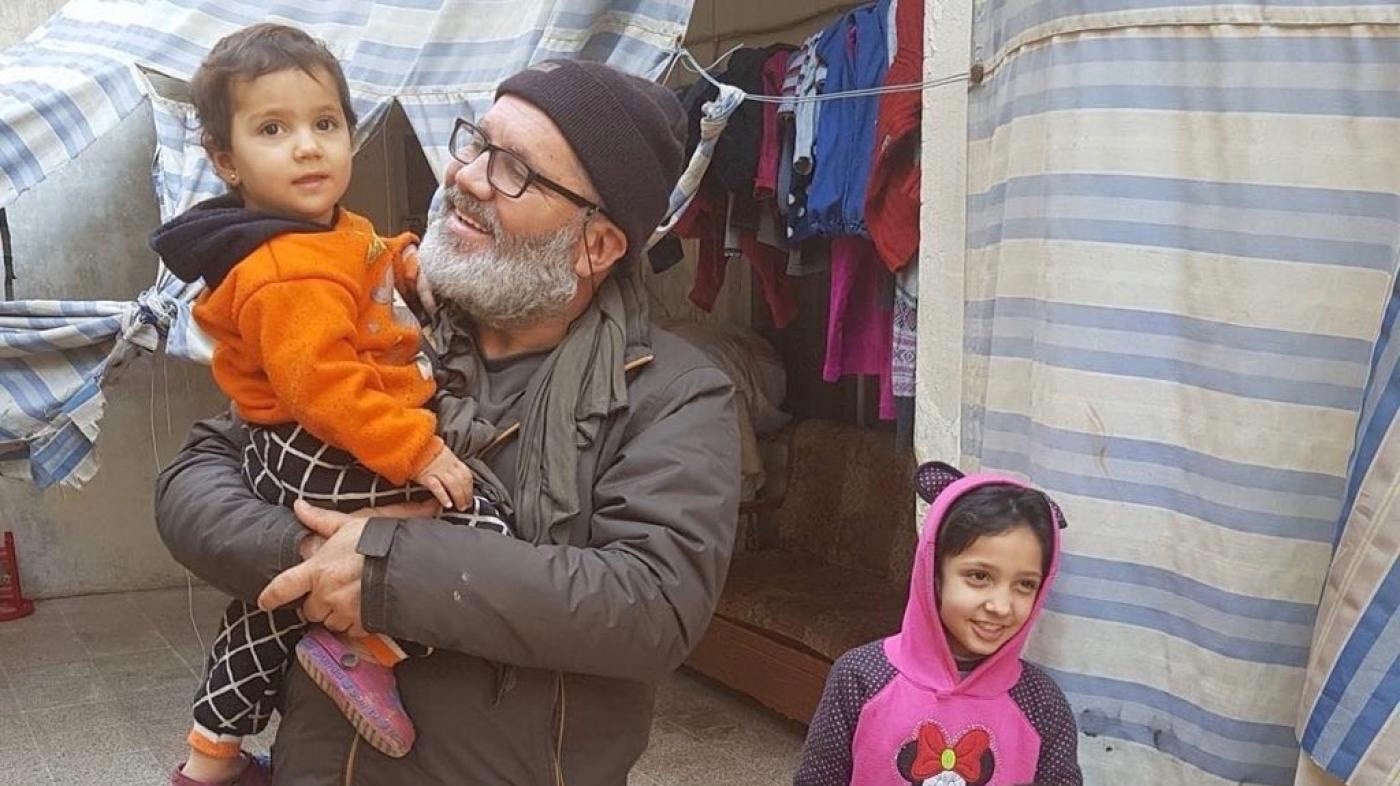
Emine Ozturk and her colleagues were sipping coffee at a luxurious hotel in Dubai, where they were attending a food trade fair, when a group of people suddenly appeared out of nowhere.
Men in plain clothes - jeans and thobes, the traditional ankle-length robes common across the region - began asking about her husband. Without showing any identification or a warrant, they forcibly took Emine and her husband, Mehmet Ali Ozturk, from their hotel and put them in black SUVs.
Before they put a bag on her head, she screamed to her colleagues to let the Turkish embassy know about the detention. The two were then taken to a facility near Abu Dhabi, where they were kept overnight.
The next morning, Emine was brought to the airport alone for deportation. The man who took her to the gate said only one thing in Turkish: "Say hi to Erdogan."
Though Emine had been freed, there was no word of Mehmet Ali. Upon her return to Turkey, Emine and her husband's friends desperately pursued every route in an attempt to uncover his whereabouts.
New MEE newsletter: Jerusalem Dispatch
Sign up to get the latest insights and analysis on Israel-Palestine, alongside Turkey Unpacked and other MEE newsletters
"He was there after obtaining a proper visa from the UAE authorities," Emine said. "It wasn't his first time. We visit almost every year for the fair."
Turkish officials delivered several formal diplomatic notes to their Emirati colleagues, who insisted that they didn't know anything about the incident.
It was February 2018, and Turkish officials weren't surprised by the response they got from the United Arab Emirates.
The counties had had a very combative relationship since the 2016 failed coup in Turkey, when Turkish officials began to publicly question whether the crown prince of Abu Dhabi, Mohammed bin Zayed, had anything to do with the conspiracy.
Furthermore, similar incidents had happened in the past, with Turkish citizens kept in custody for a couple of months to put pressure on Ankara. All of them, however, were later released. But this was different.
Mehmet Ali Ozturk, a businessman specialising in food trade who is in his late 40s, has been kept in UAE custody for nearly two and a half years.
In December 2018, a local court in the United Arab Emirates sentenced him to life in prison for allegedly providing material support to an armed group fighting the Syrian government, and posting terror propaganda on social media. The UAE's supreme court upheld the judgement last year.
Ozturk's supporters say his case involves severe violations of human rights and rule of law, and illustrates how regular citizens can be caught up in state rivalries.
Middle East Eye has approached the UAE's embassy in Ankara and deputy foreign minister for comment, without response by the time of publication.
Links to Syria
Several Turkish officials told Middle East Eye the charges brought against Ozturk are baseless.
"How could you sentence someone for life without concrete evidence?" asked a Turkish official familiar with the case. "This is a political case."
Ozturk was taken by the UAE's notorious State Security Agency on 20 February 2018.
In a phone call to his wife, an audio recording of which has been obtained by MEE, the businessman told Ermine that he had been kept in a solitary confinement for 30 days, tortured, and interrogated about Turkish President Recep Tayyip Erdogan.
Ozturk told his wife he was also questioned about Qatar's role in the US and Turkey-run Train and Equip Programme supporting Syrian opposition forces, now abandoned.
"They asked me how Qatar was transferring funds to Turkey and to the fighters. They would ask me about Erdogan and his family's role in it," he is recorded as saying.
"I don't know anything about these issues. If I said no, they would hit my head. They would beat me. They kept me in an extremely cold room with a weight put on my back, forcing me to lean, but kneeling wasn't permitted. For days I was forced to stand," he said.
Ozturk said his foot was also wounded and left to heal without any proper care for weeks.
The interrogators also asked him about how Turkey delivered weapons to Syrian rebels, specifically radical groups. They were curious about why Erdogan wasn't cooperating with Israel.
Emirati officials also began putting pressure on Ozturk's son Abdullah, who was studying in the US at the time. Their suspicions and allegations prompted an FBI inquiry, and though the agency found no wrongdoing, Abdullah nevertheless decided to drop out of university and head back to Turkey.
Officially, the UAE security forces have never painted Ozturk as anything but a legitimate target. His public profile is quite different, however.
Ozturk, who doesn't speak Arabic or English, was known for his aid campaigns in Syria's opposition-controlled areas, which were conducted through the Bayirbucak Turkman Mountain Cooperation Association, a relief group he founded in 2016.
He frequently visited northern Syria to deliver water, food and clothes to Syrian civilians who had been subjected to serial displacements and bombardments.
The indictment prepared by the UAE authorities claimed that Ozturk was transferring this aid not to civilians but to radical armed groups. Their only evidence were images Mehmet Ali Ozturk had posted posing with local commanders, some from hardline groups such as Ahrar al-Sham and Hay'at Tahrir al-Sham, others from moderate factions.
"The claims are absolutely nonsensical. He was just an aid worker who was motivated by helping innocent people," said Mete Gencer, his lawyer.
"It is obvious that you cannot work in these areas without at least a permission from these groups. The Emirates accuses him of simultaneously backing the Free Syrian Army, Nusra Front and Ahrar al-Sham groups. How does that make sense? These groups often fight each other."
The authorities also charged Ozturk with entering Syria and collecting money without proper authorization from the UAE, two countries separated by 2,000km.
The claims are absolutely nonsensical. He was just an aid worker who was motivated by helping innocent people
- Mete Gencer, lawyer
The indictment cites videos and pictures of severe clashes in Syria as evidence of his involvement in the armed rebellion. "He also has a picture where he holds a rifle," the indictment states.
Naturally he did, Emine responds. "He needed to have a rifle to protect himself. That's dangerous territory," she said.
Several receipts provided to MEE show Ozturk was coordinating his aid efforts with the Turkish Red Crescent. His close friend Oguz Tunc said it was impossible to bring any truck carrying aid to Syria without getting Turkish government approval.
"He had the paperwork, he had the permission from the local authorities to collect donations in Mersin," Tunc added.
People who know Ozturk describe him as a Turkish nationalist who wants to help Turks, Turkmens, and any Muslims in the region.
"He sent aid to Iraq, to Tal Afar. The Turkmens living there are Shia. How could you accuse this person of being a sectarian jihadi?" Tunc said. "His family's lifestyle is out there for everyone to see. His wife doesn't wear a headscarf, while his son is completely apolitical, with tattoos covering his body."
Hostage diplomacy
Gencer said his client was held without consular services and legal advice for seven months, in a black site run by the State Security Agency. He was regularly interrogated and tortured until the trial was completed in December, Gencer said.
"We hired an Emirati lawyer, but he was only able to meet him during the hearings," Gencer said. "They didn't provide him a proper translator, and he wasn't even allowed to defend himself in a reasonable way."
Once the lower court issued its decision in December 2018, Ozturk was taken from solitary confinement to al-Wathba prison.
But his family and Turkish officials only learnt of this transfer when a Syrian woman called Emine and told her that her son was kept in the same prison where Ozturk had been taken. "She gave me a number and I let the authorities know," Emine said.
Since his transfer, Ozturk has been able to talk freely to Emine, recounting the torture he gone through.
"He lost 25kg after the torture they subjected him to, from denailing to strappado," she said, referring to a torture method whereby the victim's hands are tied behind the back and they are suspended by a rope tied to the wrists. "They would do these things when he refused to take part in a video accusing Erdogan of some crimes."
A Human Rights Watch report released earlier this year is consistent with what Emine claims. The report said individuals living in the UAE were at serious risk of torture, ill treatment, prolonged solitary confinement, and denial of access to legal assistance in cases related to state security.
"Forced confessions were used as evidence in trial proceedings, and prisoners complained of dismal conditions and inadequate medical care," the report said.
The Ozturk family has also been in touch with Erdogan since last year. The president and his aides promised the family they would follow the issue closely.
"This is a mafia state. And we are in a fight," Yasin Aktay, one of the Turkish president's advisers on the Middle East, said of the UAE. "The things we can do are limited. But we are doing our best."
Aktay says the UAE has been trying to use hostage diplomacy against Turkey for a while. "They would like us to deport some members of the Muslim Brotherhood from the country, or the UAE dissidents living in Istanbul," he said. "This won't happen."
Meanwhile, Ozturk's friends have been trying to raise awareness of the issue through campaigns on social media. Gencer, his lawyer, released during last week's Eid holiday an audio recording of a recent phone conversation with Ozturk, in which he details how he is having to navigate a new danger: coronavirus.
Fearful of contagion, the prison guards have left the inmates to fend for themselves, Ozturk is heard saying. Gencer said his client has been kept in unsanitary conditions.
"Two people died here. Thirty others have coronavirus symptoms," Ozturk says in the recording.
Aktay, Erdogan's adviser, said the whole thing is demonstrative of the way the UAE operates, and cites its conduct in the Yemeni and Libyan conflicts as further examples of inflicting trauma on civilians.
"The UAE itself must be put on trial for the gross violations of human rights they are responsible for in Yemen and Libya," he said. "We don't expect any justice from them."
Middle East Eye delivers independent and unrivalled coverage and analysis of the Middle East, North Africa and beyond. To learn more about republishing this content and the associated fees, please fill out this form. More about MEE can be found here.


